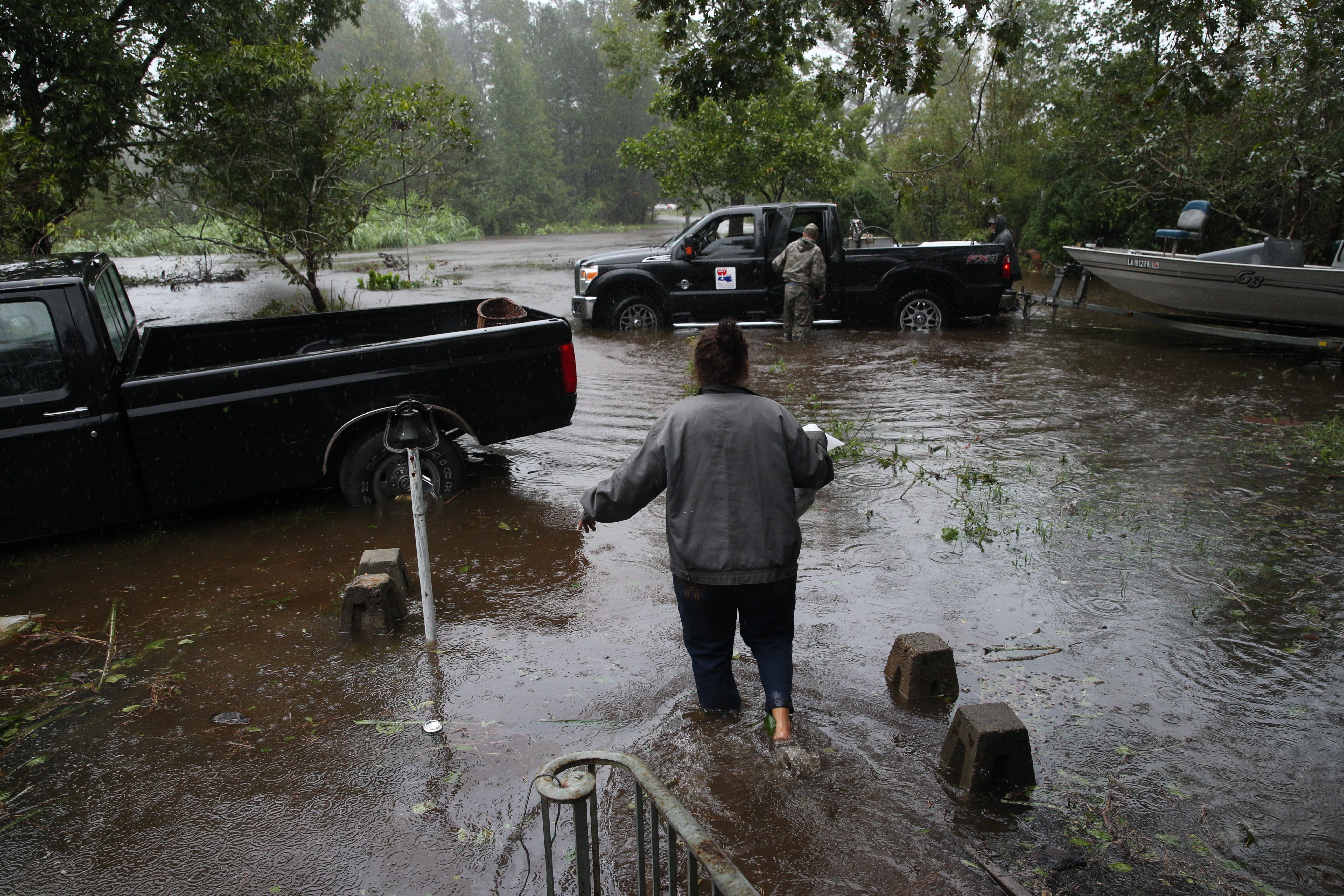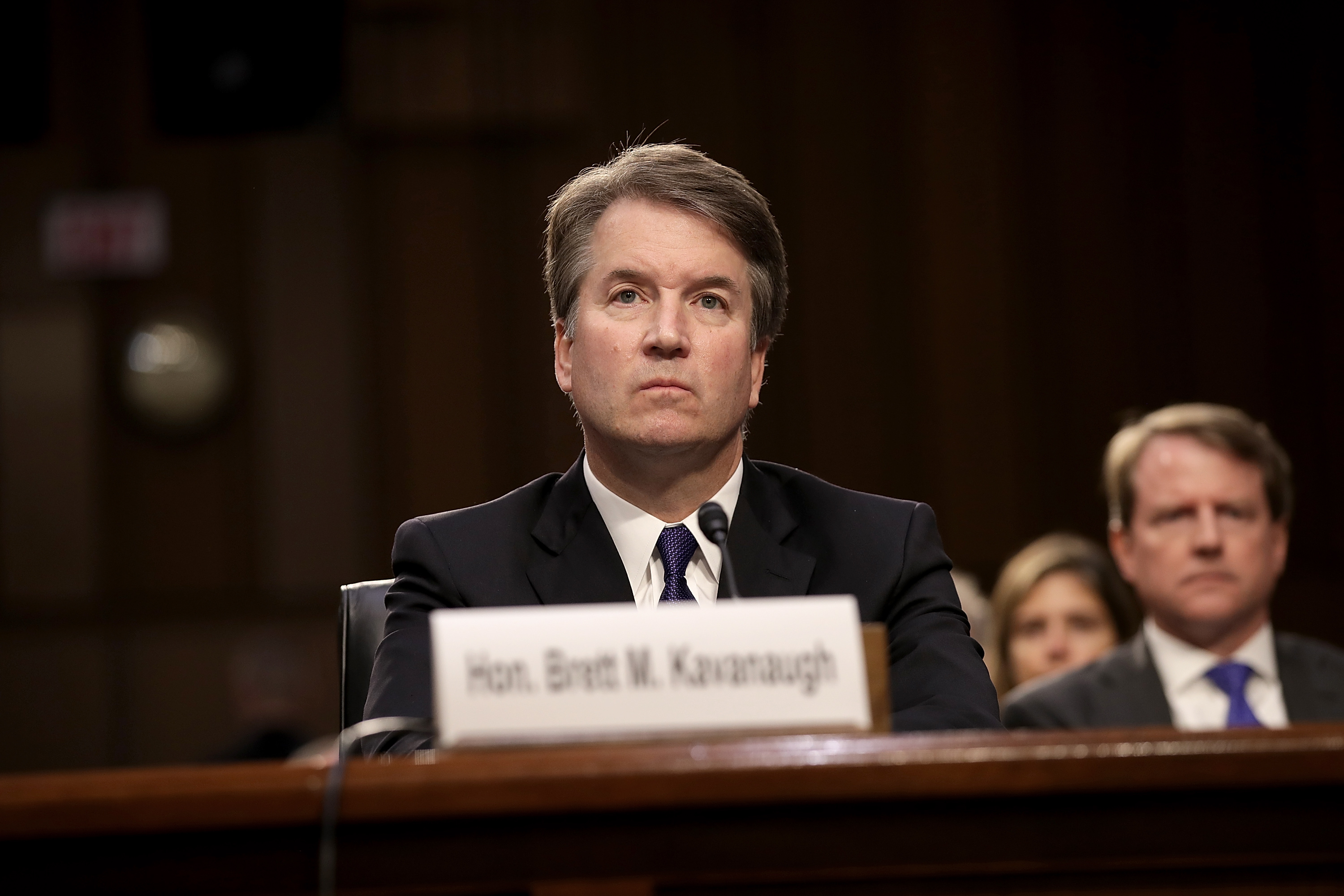A weekly newsletter for Pacific Standard Premium members.

(Photo: Alex Edelman/AFP/Getty Images)
Your Five Essential Reads
A rundown of five of our most important and timely stories from the past week.
- Earlier this month, the 9th Circuit Court of Appeals ruled that prosecuting homeless people for “sitting, lying, or sleeping” on the streets when they have nowhere to go is cruel and unusual punishment, a violation of the Eighth Amendment. However, according to many of Los Angeles’ over 41,000 unsheltered homeless people, including those contributing writer Jack Denton spoke to on Skid Row, these legal protections haven’t resulted in a noticeable change in treatment from the Los Angeles Police Department. Read Denton’s story here.
- Grassroots Campaigns Inc. is a company that canvasses for non-profits like Planned Parenthood and the American Civil Liberties Union, and is a self-described, “progressive” company. However, according to employees that spoke to contributing writer Arvind Dilawar, GCI’s labor practices stand in stark contrast to its outward perception. Read Dilawar’s story here.
- In the Central Valley of California, oil companies have continued to dump wastewater into unlined ponds that allow toxic chemicals to seep into the region’s water supply. Staff writer Kate Wheeling investigates this troubling practice, and why Governor Jerry Brown’s administration has failed to put a stop to it. Read Wheeling’s investigation here.
- Much has been made of the potential infrastructural and economic damage that has been caused by Hurricane Florence in the Carolinas. But how do you put a price on things like historic archives that trace the history of the slave trade and segregation? Contributing writer Sophie Yeo spoke with archivists in the region who are attempting to address this very question. Read Yeo’s story here.
- During his climate conference cum coronation as the outgoing prince of environmental leadership, California Governor Jerry Brown made big proclamations about sending satellites into the stratosphere. Alissa Greenberg went into the factory where these objects are being made, and left with some interesting questions about what they mean for both the environment and citizen privacy. Read Greenberg’s story here.

Dispatches: A Historic Supreme Court Confirmation Hearing
News and notes from Pacific Standard staff and contributors.
This past Thursday’s news cycle was dominated by one event: the testimony of research psychologist Dr. Christine Blasey Ford and Brett Kavanaugh. While the American public watched rapt, Blasey Ford spoke in front of a testy, contentious senate judiciary committee, recounting her allegations that Kavanaugh, along with Mark Judge, sexually assaulted her back in high school. Staring down some of the most powerful people in the country, Ford stated: “I am terrified. I am here because I believe it is my civic duty to tell you what happened to me while Brett Kavanaugh and I were in high school.”
She then answered questions from Democratic senators before Republicans brought in Rachel Mitchell, a special cross-examiner from Arizona, to interrogate Ford over her story—mixing scientific insights into her harrowing personal story. After Ford’s testimony concluded, Kavanaugh adamantly denied the accusations against him, calling them uncorroborated and unsubstantiated. And yet, Kavanaugh and Republican senators refused to countenance the possibility of an investigation from the Federal Bureau of Investigation of the assault. Earlier this week, senior staff writer Tom Jacobs spoke to legal scholar Aya Gruber about why Kavanaugh should be pushing for an inquiry—as opposed to avoiding one.
While the political implications of this momentous day are yet to be fully realized, what should not be lost in the partisan fireworks is how this discussion reflects America’s broader reckoning with victims of sexual assault—an issue Pacific Standard has covered in depth. First, the science around assault allegations is clear: We should believe women. Staff writer Francie Diep took a look at what happens when, on the very rare occasion, a false allegation is made, and how that can better guide society in how to support victims of sexual assault. In the past, we’ve looked at the lifelong consequences of rape, broken down how the more we discuss rape the more likely it is that victims will report crimes committed against them, and deconstructed America’s rape culture.
All this work illustrates that, in the end, regardless of the politics, the Kavanaugh hearings have been yet another reminder that our country still has a long way to go to fully reckon with issues of sexism and sexual assault.
—Ian Hurley, Assistant Editor

(Photo: Kevin Winter/Getty Images for FYF)
PS Picks
PS Picks is a selection of the best things that the magazine’s staff and contributors are reading, watching, or otherwise paying attention to in the worlds of art, politics, and culture.
Blood Orange: It’s been a big year for sad, male hip hop artists. The opening line to rapper 6lack’s latest album is a melancholic “Hope my mistakes don’t make me less of a man,” a defensive assertion of his character combined with the trace remnants of an apology. Angsty R&B artists like dijon and No Rome saturate SoundCloud with melancholy lyrics like “She told me I’m a narcissist doing it again / Took a bunch of acid and she told me ‘not again.’” And it seems that not a day passes by without Drake releasing some lengthy dirge about how the constant stream of women in his life is not only exhausting, it’s downright hurtful.
This recurring trope of brooding male pain lends itself to an image of masculinity that is predicated on self-righteous bitterness. (In keeping with hip hop’s history of excluding and denigrating women, it almost goes without saying that females are nearly always the target of this bitterness.) So what does sad rap and R&B sound like without the confines of male pride? When is music self-reflection and when is it self-indulgence? What separates the sad boys, as it were, from the sad men?
For Dev Hynes, an artist who works under the stage name Blood Orange, there isn’t a singular way to express either masculinity or grief. Upon the release of his penultimate album, Freetown Sound, Hynes stated on Instagram that the album is dedicated to those who were told they were “not black enough, too black, too queer, not queer the right way.” His songs, while unequivocally sad, express feeling without being whiny, and articulate his male identity without hyper-masculine hang-ups. Hynes’ music blends an array of genres from R&B to dancehall to soul, and his vision of emotionality is similarly borderless; on his song “Best to You,” bouncy, airy melodies serve as the backdrop for a story about dissatisfying love, and on “Better Than Me,” he and Carly Rae Jepsen duet together about their fear of inferiority and rejection.
Ultimately, Hynes addresses sadness by looking at it squarely in the face, minus the self-aggrandizement of some of his contemporary counterparts, and deconstructs restrictive notions of masculinity in the process.
—Alexa Lee, Engagement Fellow
PS in the News
A look at where our stories and staff surface in the national conversation.
- Staff writer Kate Wheeling appeared on KCRW to talk about her feature reporting on California’s oil industry and regulators. The California Sun included Wheeling’s work in its daily newsletter, while Clean Water Action and Food & Water Watch shared the story on their social pages.
- FiveThirtyEight linked to senior staff writer Tom Jacobs’ piece in a discussion about whether Brett Kavanaugh’s confirmation hearings will inspire the Republican base to participate in the upcoming mid-term elections.
- Kathleen Sharp’s feature, “The Theft of the Gods,” from our November 2017 issue was a finalist for the 2018 PEN Los Angeles Literary Journalism Award.
The Conversation
Science Says: Believe Women (September 21st, 2018)
- Bad phrasing on one bit: difficulty recalling details is normal, but if you knew the attacker, their identity is not a “detail.” I experienced a similar, if slightly milder, assault at 16, and I remember his name quite correctly, I assure you. (He also was wealthy, privileged, and grew up to be a lawyer, I’ve since learned.) Some bits of the assault I remember more clearly than others. You focus on details, not the entire thing. —Eve Nicholls
- I am sure there are still families that would shun or disown members who claim or admit sexual abuse. As a population we generally do not know what to do with the information. Too often it is the victim that is shunned. —Lois Brennan
Letter From Phantom Ranch: Meet the Man Who Lives at the Bottom of the Grand Canyon (September/October 2018)
- Awesome magazine. World-class journalism from beginning to end. Dump some Internet junk you’ve been reading and spend time here. At the end of the day, you’ll have acquired a trustworthy education from each offering without a need to fact check. A rarity on the net. —David Roberts
If you have any thoughts about this newsletter or our work—what you like/didn’t like/want to see more of—you can reach us at premium@psmag.com. If you’re not already, become a premium member by following the button below. As we continue to build out the benefits of a premium membership to Pacific Standard, we want to hear what would be most valuable to you.





